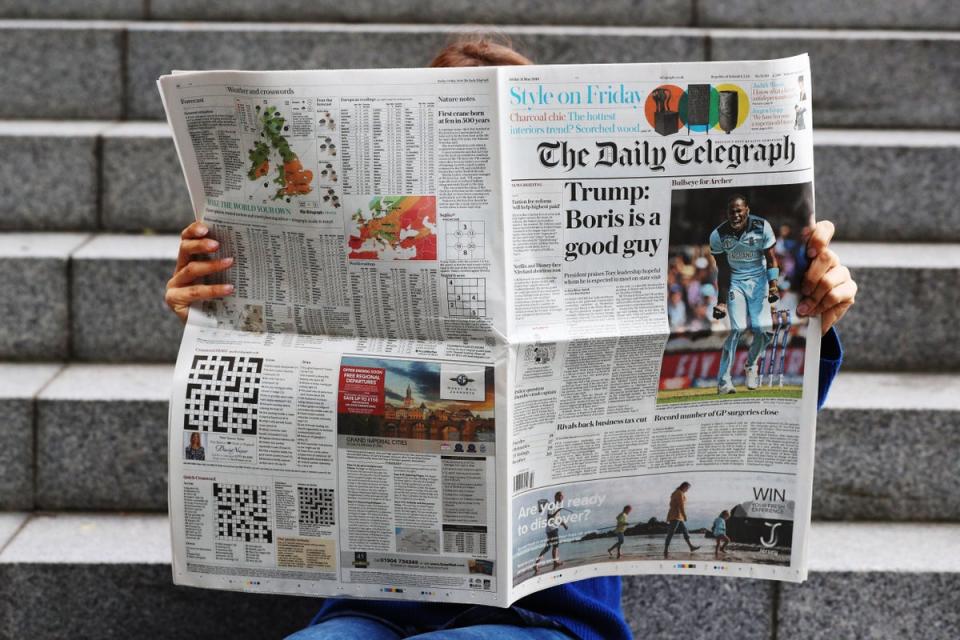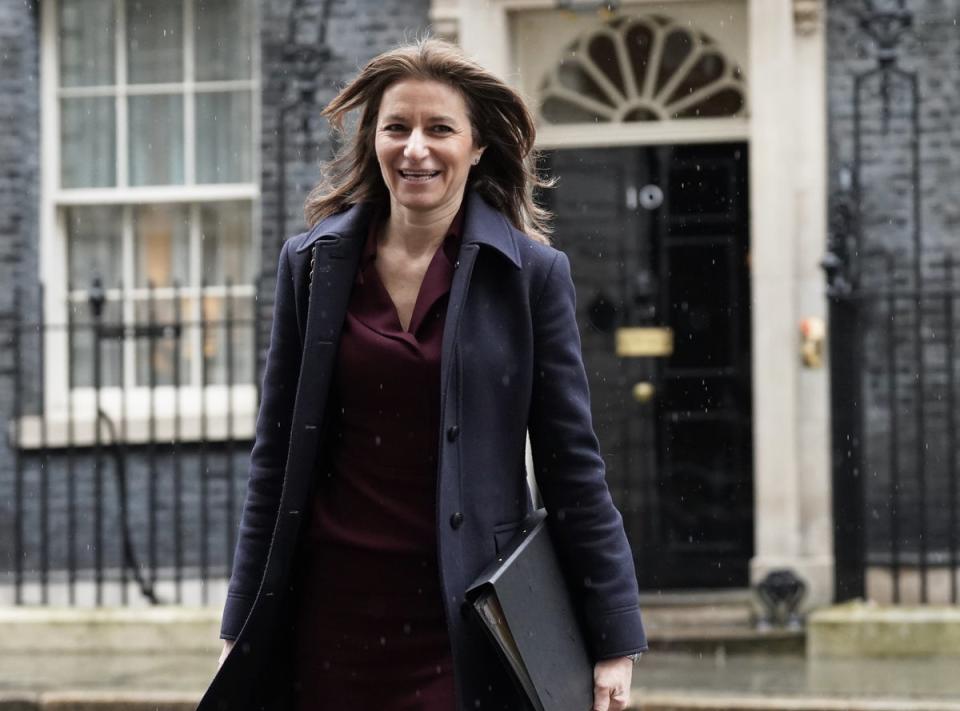UK set to ban foreign governments from owning British newspapers
Rishi Sunak’s government is set to change the law to ban foreign states from owning, influencing or controlling British newspapers – in a move threatening the Abu Dhabi-backed bid for The Daily Telegraph and The Spectator.
The government outlined its plans in a House of Lords debate on Wednesday evening, which would empower the culture secretary to block any deals found to pave the way for foreign ownership or influence.
The commitment to banning foreign state ownership of national newspapers and periodical news magazines will come in an amendment to the third reading of the Digital Markets, Competition and Consumers Bill, which is currently making its way through parliament.

Ministers are expected to bring forward an amendment to the legislation as soon as next Tuesday.
A government spokesperson said: “We have listened carefully to the arguments made by parliamentarians in recent weeks, and are taking action to explicitly rule out foreign state ownership, influence or control of newspapers and periodical news magazines.
“This will deliver additional protections for a free press, a pillar of our democracy and a priority for the government.
“While our media merger regime already provides protection for accuracy of the news and free expression of views, which allows for the consideration of foreign state ownership, we will bring forward an amendment that puts the position beyond doubt.”
The proposed takeover of The Sunday Telegraph, the Telegraph and The Spectator by RedBird-IMI – a US-Abu Dhabi joint venture 75 per cent-owned by Sheikh Mansour, vice president of the United Arab Emirates – has prompted howls of protest from politicians, journalists and even a former spy chief that the deal risks press freedom.

Media regulator Ofcom and the Competition and Markets Authority (CMA) both submitted reports to the government this week on the proposed takeover, leaving media secretary Lucy Frazer to decide whether the purchase should go ahead.
The government, which for years has had an open approach to foreign takeovers, intervened in the deal in November, ordering an investigation to assess its impact on freedom of expression and accuracy.
While Ms Frazer already has the power to block such a deal, or order a longer investigation, it is understood that the proposed new legislation would in effect impose a statutory duty on ministers to block any deal deemed by the CMA to amount to foreign ownership or influence.
More than 100 politicians wrote to Ms Frazer ahead of the deadline for the regulators’ reports into the proposed takeover of the Telegraph, warning that, “if major newspaper and media organisations can be purchased by foreign governments, the freedom of the press in the UK has the potential to be seriously undermined”.
“This is a dangerous Rubicon we should not cross,” they added, urging the culture secretary to block the deal.
The newspaper holds significant influence among Conservative MPs. Former prime minister Boris Johnson is claimed by former aide Dominic Cummings to have dubbed the publication his “real boss”.
Sheikh Mansour heads a number of UEA sovereign wealth funds which hold British assets, and owns Premier League football club Manchester City.
RedBird IMI, which plans to take control of the titles through a new UK-registered company, has given repeated reassurances that it is “entirely committed to maintaining the existing editorial team” and that its editorial independence is “essential to protecting their reputation and credibility”.
The new amendments aimed at banning foreign ownership could apply to the Telegraph Media Group takeover if they pass into law swiftly, government minister Lord Parkinson suggested, as he set out the plans in the Lords on Wednesday.
“With regard to any live case, if it is still ongoing when the new changes come into effect, the secretary of state will continue to follow the process set out in the existing regime and will also apply the new measures that will be set out in the government amendments,” the minister told peers.
Additional reporting by Reuters

 Yahoo News
Yahoo News 
